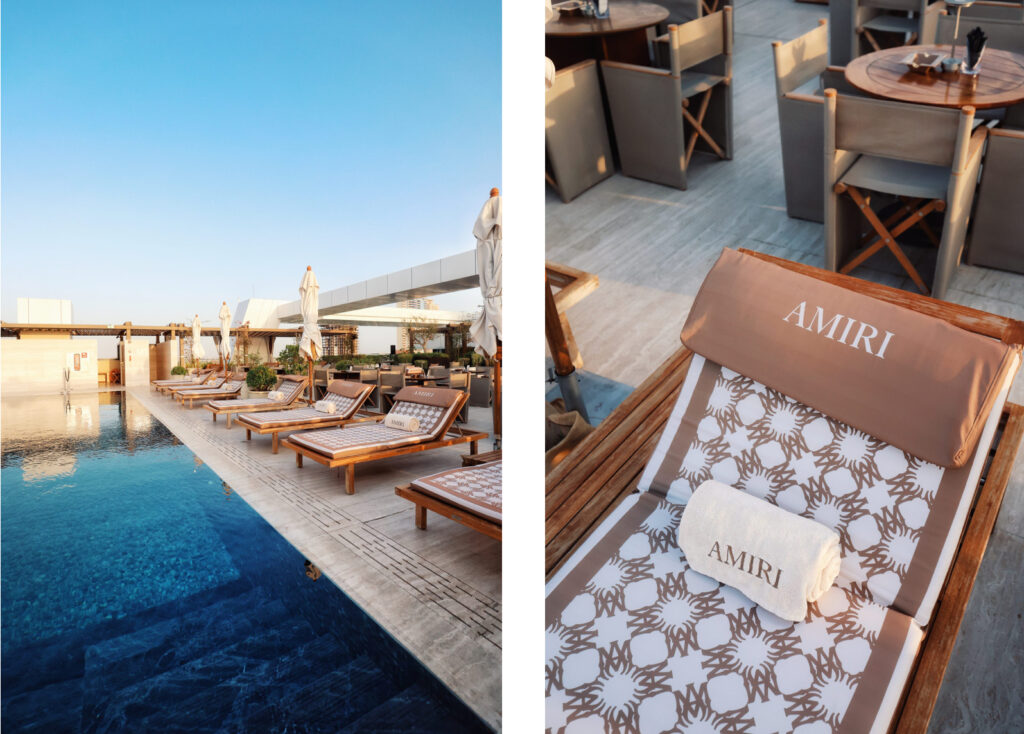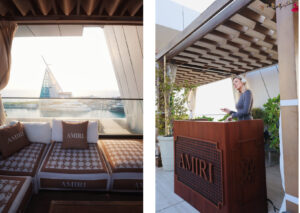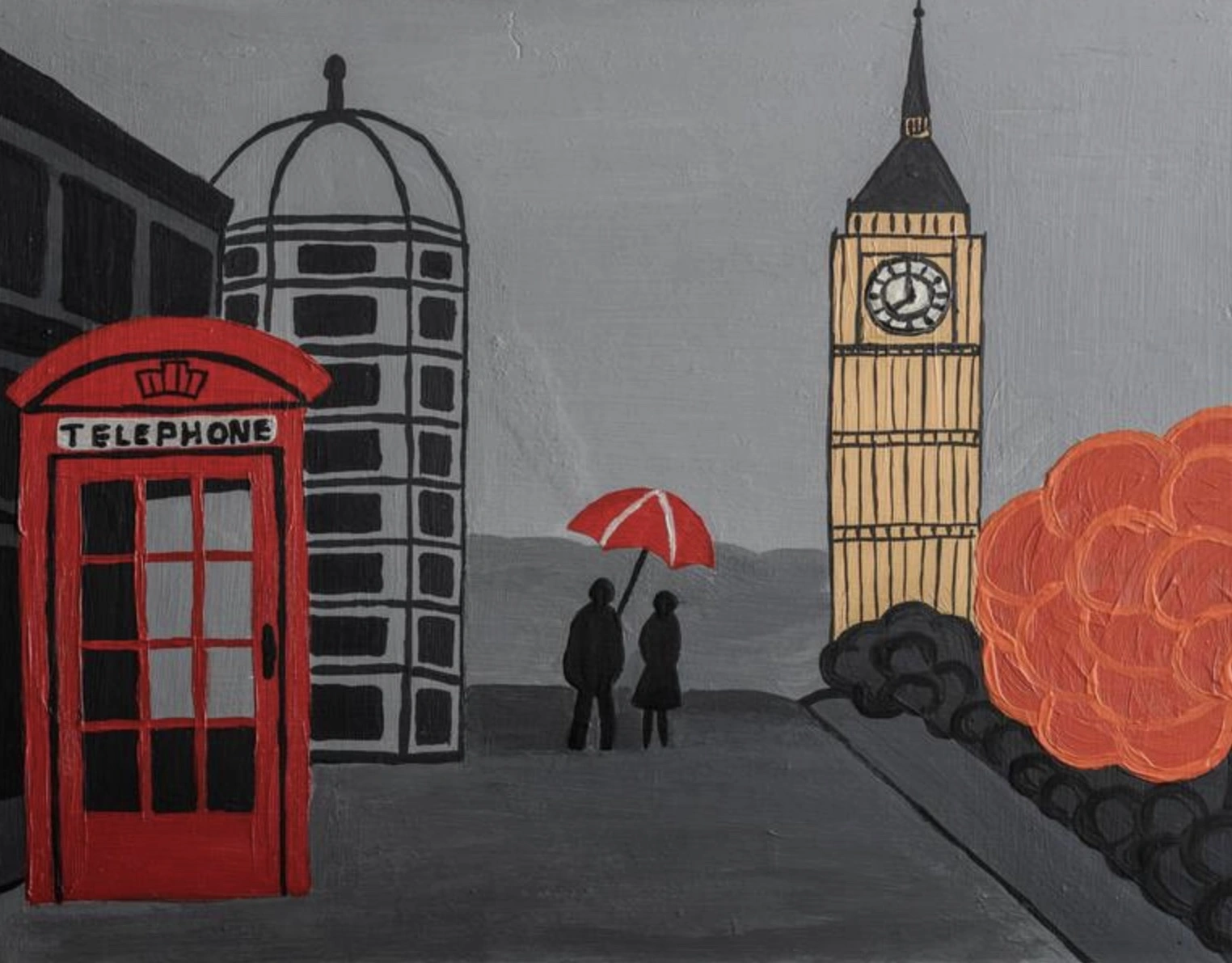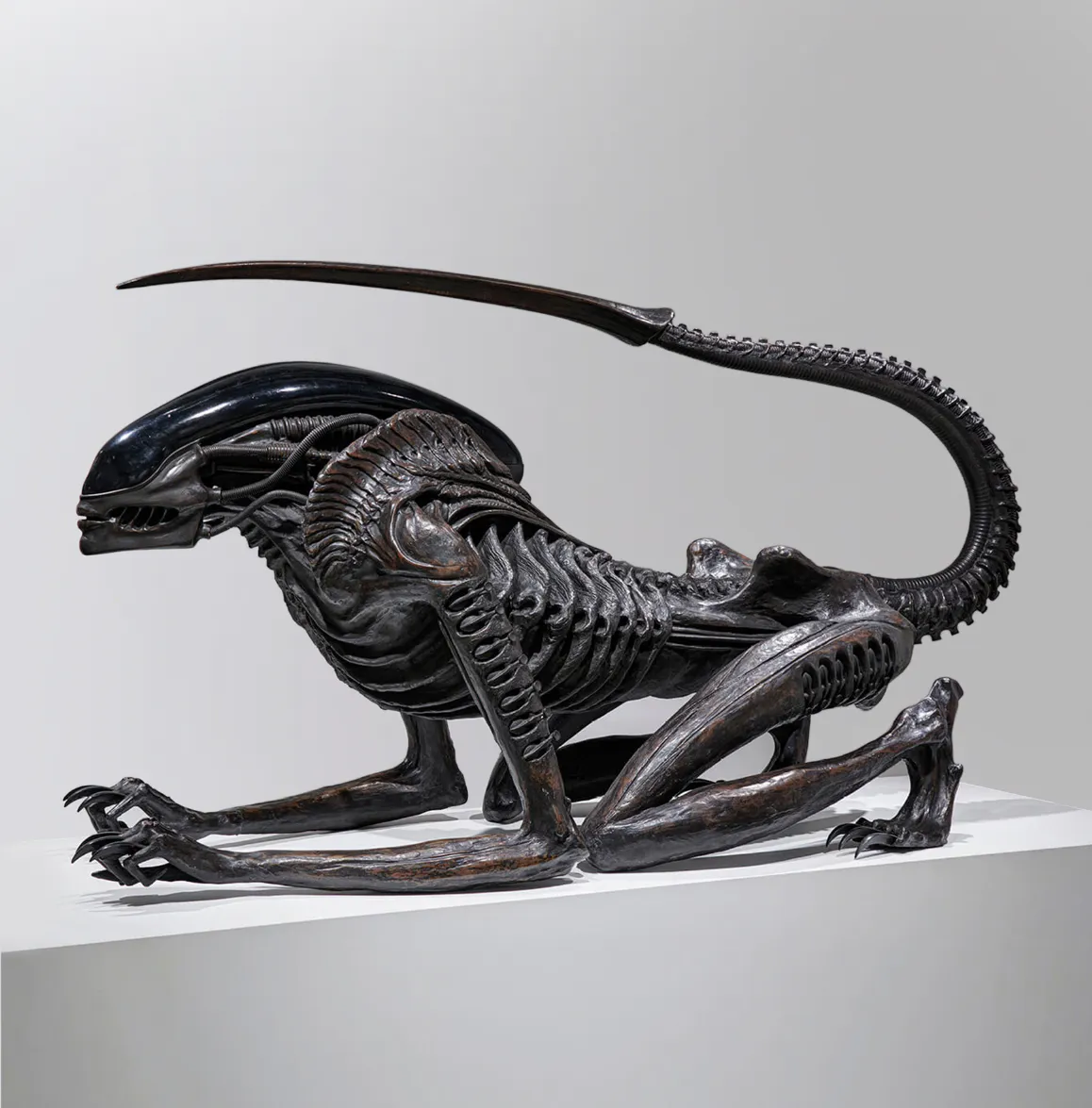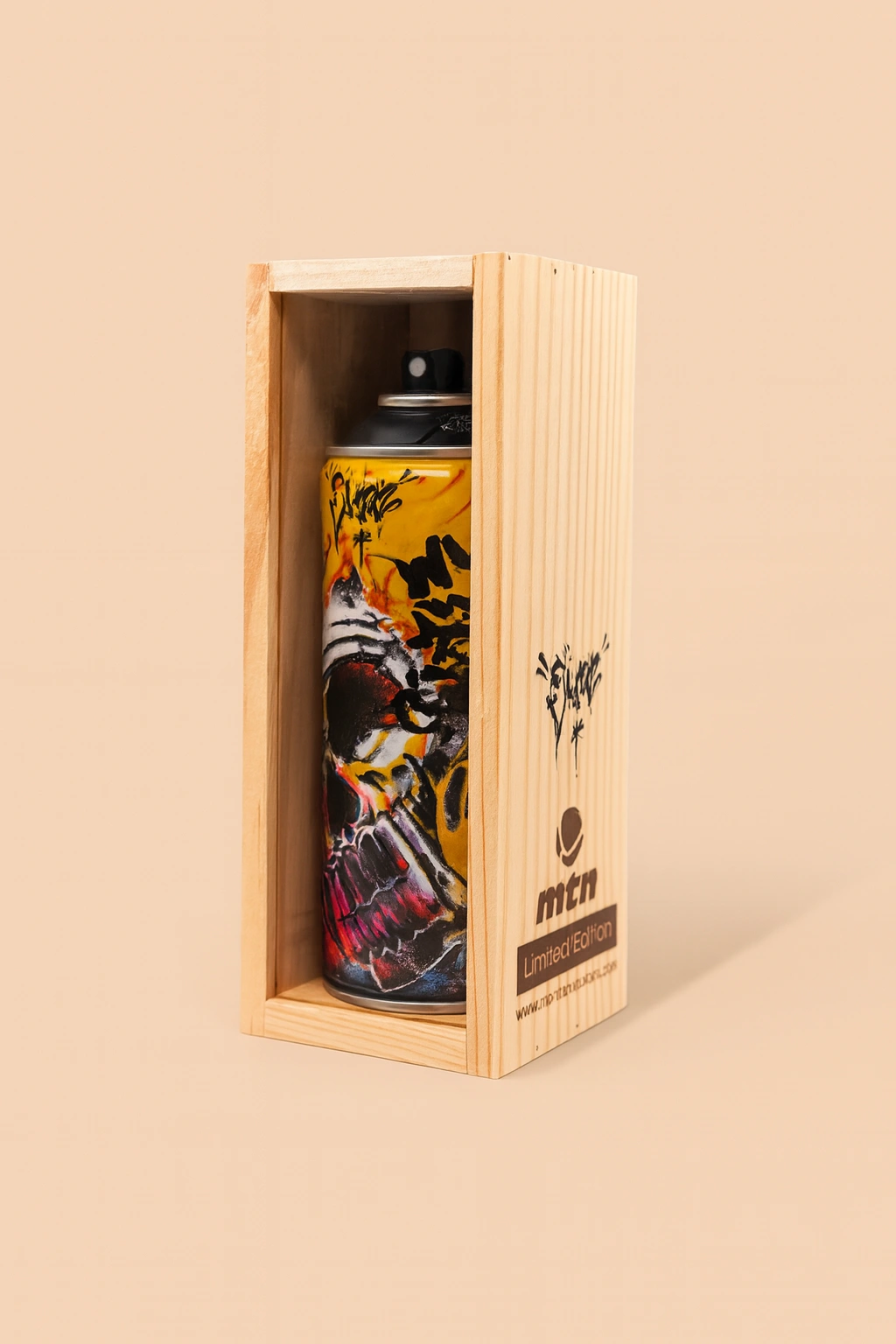Above the azure waters of the Red Sea, where the curved architecture of the Jeddah EDITION peers out toward the golden glint of the Formula 1 circuit, a new kind of fashion diplomacy is being written—one that does not rely on runways, but on rooftops. The occasion: AMIRI’s first-ever regional activation in Saudi Arabia, a rooftop takeover that fuses California nonchalance with Saudi ambition. It is more than a branding stunt. It is a signal.
AMIRI, the Los Angeles-born label that evolved from cult denim purveyor to global luxury house, has planted its flag at one of the region’s most progressive hospitality landmarks. The rooftop of The Jeddah EDITION, famed for its panoramic vistas of the Jeddah Yacht Club and its role in Saudi Arabia’s growing entertainment and cultural circuit, has been reimagined as a living installation of AMIRI’s world—laid-back yet architectural, elevated but grounded, global yet local.
This isn’t just a pop-up. It’s a cultural event. A provocation. A whisper that AMIRI is not here to conform but to translate its DNA—sun-baked, rock-inflected, and precision-tailored—into a new language of regional relevance.
A NEW LUXURY CARTOGRAPHY: AMIRI’S EXPANSION PLAN
When Mike Amiri founded his namesake label in 2014, the landscape of American luxury menswear was barren, too often defined by dichotomies: streetwear or tailoring, performance or poise. AMIRI carved out a liminal space—a world of distressed leather, hand-embellished denim, and couture-precision silks that spoke to L.A.’s creative class: musicians, artists, and those who orbit fame without succumbing to it.
Now, a decade later, AMIRI’s international expansion feels less like a conquest and more like a calibration. The brand is not simply opening stores in global capitals; it is engaging in regional storytelling. From Paris to Dubai, AMIRI adapts, not dilutes. In Jeddah, the rooftop takeover is both a visual metaphor and a strategic foothold—suspended above a city that itself is suspended in a dramatic cultural shift.
As Saudi Arabia repositions itself as a nexus of global culture—hosting raves in the desert, unveiling film festivals, reconfiguring its art institutions—AMIRI’s arrival is both timely and tactful. The brand doesn’t pander. It positions. It understands that in the Gulf, haute is not about excess but elevation.
THE SPACE AS STAGE: DESIGNING THE EXPERIENCE
The AMIRI rooftop activation is less a showroom and more a cinematic environment—part Sunset Strip, part Arabian Futurism. Designed in conversation with The Jeddah EDITION’s architectural cues, the space features soft curves, sand-toned palettes, and modular seating that invites both intimacy and spectacle.
Palm trees in concrete planters echo Venice Beach minimalism, while textures—matte leathers, raw silks, brushed metals—anchor the scene in tactile sensuality. Custom lighting reflects the warm haze of an L.A. dusk, filtered through Saudi light. Here, aesthetics are not imposed but interwoven.
Music, too, plays a role. The rooftop pulses with curated sounds that span west coast hip-hop, Arabic electronica, and experimental jazz. Every detail contributes to an atmosphere that doesn’t just sell clothing—it broadcasts a state of mind. Guests don’t browse racks; they inhabit a narrative.
This is bespoke as staging ground—each seat, each object, a prop in the theater of global cool.
DUALITY AND DIALOGUE: JEDDAH EDITION AS PARTNER
The choice of The Jeddah EDITION as collaborator is strategic. EDITION, the boutique hotel brand conceived by Ian Schrager and Marriott International, is itself a symbol of duality: local immersion fused with international sophistication. The Jeddah property, launched as part of the Red Sea development initiative, is a cornerstone of Saudi’s new cultural ecosystem. It’s where curated modernism meets Bedouin heritage, where Gulf futurism meets art deco abstraction.
By hosting AMIRI, The Jeddah EDITION positions itself not just as a hotel, but as a platform. It allows fashion to inhabit its walls not as ornament, but as philosophy. Together, AMIRI and EDITION articulate a new vision of hospitality—one in which spaces are designed not only to host but to express.
This partnership is not a one-off—it is a template for future interactions between fashion brands and experiential real estate in the Middle East. It signals that the region is no longer a passive consumer of luxury but an active re-author.
FASHION IN THE GULF: CONTEXTUALIZING THE MOMENT
To understand the significance of AMIRI’s presence in Saudi Arabia, one must understand the cultural recalibration underway. In the past five years, Saudi’s public sector has poured billions into Vision 2030, a national agenda centered on diversification, tourism, and creative economy growth. Fashion, once restricted to private salons and global imports, is now part of a growing domestic discourse.
Local designers like Arwa Al Banawi and Hindamme are reinterpreting Saudi identity through contemporary silhouettes. International brands—from Balenciaga to Fear of God—are staging activations across Riyadh, AlUla, and Dhahran. AMIRI’s rooftop takeover, then, is not an isolated experiment but a new node in an expanding fashion network.
Yet it stands out precisely because it resists spectacle. There is no massive runway. No towering logo. Just atmosphere, taste, and context. AMIRI is not trying to impress; it’s trying to converse. The Saudi audience, sophisticated and digital-first, doesn’t need instruction on luxury. They want coherence. And that’s what AMIRI offers—precision without pretense.
THE CLOTHES THAT GROUND THE CLOUDS
While the activation is spatial, the collection remains central. AMIRI’s Spring/Summer pieces anchor the experience. Think flared silk trousers, suede varsity jackets, featherweight mohair knits, and hand-patched denim—a wardrobe built for movement, but never in a rush.
There is a tension in AMIRI’s tailoring: softness meets structure. This is not the rigidity of Savile Row nor the hyper-utilitarianism of streetwear. It’s what you wear when you want to be noticed without trying. In Saudi, where gender expression, climate, and modesty codes are actively being re-examined, AMIRI’s androgynous silhouettes and luxe layers provide options, not prescriptions.
Guests at the Jeddah EDITION encounter the clothes not behind glass, but through lifestyle vignettes—styled figures reclining, conversing, lounging. Each look is lived in, not exhibited. In this way, the garments aren’t aspirational—they’re ambient.
ROOFTOPS AS RHETORIC: ARCHITECTURE OF ASPIRATION
The rooftop takeover as a format is powerful. Rooftops in fashion have always symbolized distance and perspective—elevated, exclusive, ephemeral. From Calvin Klein’s shows at the American Stock Exchange to Jacquemus’ mountaintop presentations, the sky is both literal and metaphorical.
In Jeddah, the rooftop carries even more weight. It’s a place where new ideas can breathe. Where the city’s dense humidity meets international cool. Where fashion can suspend itself above politics, expectation, and cliché.
AMIRI’s activation doesn’t just occupy this rooftop. It authors it. It tells the story of a brand that understands that in the new luxury era, meaning is made not in the studio, but in the staging.
AFTERWORD: WHAT REMAINS AFTER THE POP-UP
When the lighting rigs are dismantled, and the branded cushions stored, what will linger?
First, the blueprint. AMIRI’s approach to regional engagement—rooted in respect, attuned to culture, unafraid of understatement—sets a precedent. Not just for other luxury houses, but for Saudi’s own creative class, who now see fashion not as import but as dialogue.
Second, the memory. Those who attended the rooftop will remember not just the clothes, but the feeling—of music lifting into the salt air, of sunset casting gold across camel-toned tiles, of a brand that understood place not as a backdrop but as collaborator.
And finally, the future. AMIRI in Jeddah is not a climax, but an overture. Expect more rooftops. More conversations. More expressions of a fashion brand that believes relevance is earned not through expansion, but through intention.
No comments yet.

